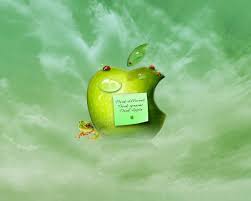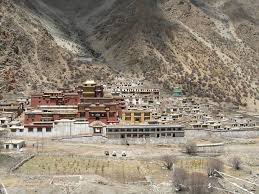Free Backgrounds Biography
Croatia is a unitary democratic parliamentary republic in Europe at the crossroads of Central Europe, the Balkans, and the Mediterranean. Its capital and largest city is Zagreb. The country is divided into 20 counties and the city of Zagreb. Croatia covers 56,594 square kilometres (21,851 square miles) and has diverse, mostly continental and Mediterranean climates. Croatia's Adriatic Sea coast contains more than a thousand islands. The country's population is 4.29 million, most of whom are Croats, with the most common religious denomination being Roman Catholicism.
In the early 7th century the Croats arrived in area of present-day Croatia. They organised the state into two dukedoms by the 9th century. Tomislav became the first king by 925 AD, elevating Croatia to the status of a kingdom. The Kingdom of Croatia retained its sovereignty for nearly two centuries, reaching its peak during the rule of Kings Peter Krešimir IV and Dmitar Zvonimir. Croatia entered a personal union with Hungary in 1102. In 1527, faced with Ottoman conquest the Croatian Parliament elected Ferdinand I of the House of Habsburg to the Croatian throne. In 1918, after World War I, Croatia was included in the short-lived State of Slovenes, Croats, and Serbs that declared independence from Austria–Hungary and co-founded the Kingdom of Yugoslavia. A Croatian state briefly existed during World War II as a fascist puppet state. After the war, Croatia became a founding member and a federal constituent of the Second Yugoslavia, a socialist state. In June 1991, Croatia declared independence, which came into effect on 8 October of the same year. The Croatian War of Independence was fought successfully during the four years following the declaration.
Croatia today has a very high Human Development Index. The International Monetary Fund classified Croatia as an emerging and developing economy, and the World Bank identified it as a high income economy. Croatia is a member of the United Nations, the Council of Europe, NATO, the World Trade Organization, CEFTA and a founding member of the Union for the Mediterranean. Croatia is an acceding state of the European Union, with full membership expected in July 2013. As an active participant in the UN peacekeeping forces, Croatia has contributed troops to the NATO-led mission in Afghanistan and took a non-permanent seat on the UN Security Council for the 2008–2009 term.
The service sector dominates Croatia's economy, followed by the industrial sector and agriculture. Tourism is a significant source of revenue during the summer, with Croatia ranked the 18th most popular tourist destination in the world. The state controls a part of the economy, with substantial government expenditure. The European Union is Croatia's most important trading partner. Since 2000, the Croatian government has invested in infrastructure, especially transport routes and facilities along the Pan-European corridors. Internal sources produce a significant portion of energy in Croatia; the rest is imported. Croatia provides a universal health care system and free primary and secondary education, while supporting culture through numerous public institutions and through corporate investments in media and publishing. The nation prides itself in its cultural, artistic and scientific contributions to the world, as well as in its cuisine, wines and sporting achievements.The area known as Croatia today was inhabited throughout the prehistoric period. Fossils of Neanderthals dating to the middle Palaeolithic period have been unearthed in northern Croatia, with the most famous and the best presented site in Krapina.Remnants of several Neolithic and Chalcolithic cultures were found in all regions of the country.








Croatia is a unitary democratic parliamentary republic in Europe at the crossroads of Central Europe, the Balkans, and the Mediterranean. Its capital and largest city is Zagreb. The country is divided into 20 counties and the city of Zagreb. Croatia covers 56,594 square kilometres (21,851 square miles) and has diverse, mostly continental and Mediterranean climates. Croatia's Adriatic Sea coast contains more than a thousand islands. The country's population is 4.29 million, most of whom are Croats, with the most common religious denomination being Roman Catholicism.
In the early 7th century the Croats arrived in area of present-day Croatia. They organised the state into two dukedoms by the 9th century. Tomislav became the first king by 925 AD, elevating Croatia to the status of a kingdom. The Kingdom of Croatia retained its sovereignty for nearly two centuries, reaching its peak during the rule of Kings Peter Krešimir IV and Dmitar Zvonimir. Croatia entered a personal union with Hungary in 1102. In 1527, faced with Ottoman conquest the Croatian Parliament elected Ferdinand I of the House of Habsburg to the Croatian throne. In 1918, after World War I, Croatia was included in the short-lived State of Slovenes, Croats, and Serbs that declared independence from Austria–Hungary and co-founded the Kingdom of Yugoslavia. A Croatian state briefly existed during World War II as a fascist puppet state. After the war, Croatia became a founding member and a federal constituent of the Second Yugoslavia, a socialist state. In June 1991, Croatia declared independence, which came into effect on 8 October of the same year. The Croatian War of Independence was fought successfully during the four years following the declaration.
Croatia today has a very high Human Development Index. The International Monetary Fund classified Croatia as an emerging and developing economy, and the World Bank identified it as a high income economy. Croatia is a member of the United Nations, the Council of Europe, NATO, the World Trade Organization, CEFTA and a founding member of the Union for the Mediterranean. Croatia is an acceding state of the European Union, with full membership expected in July 2013. As an active participant in the UN peacekeeping forces, Croatia has contributed troops to the NATO-led mission in Afghanistan and took a non-permanent seat on the UN Security Council for the 2008–2009 term.
The service sector dominates Croatia's economy, followed by the industrial sector and agriculture. Tourism is a significant source of revenue during the summer, with Croatia ranked the 18th most popular tourist destination in the world. The state controls a part of the economy, with substantial government expenditure. The European Union is Croatia's most important trading partner. Since 2000, the Croatian government has invested in infrastructure, especially transport routes and facilities along the Pan-European corridors. Internal sources produce a significant portion of energy in Croatia; the rest is imported. Croatia provides a universal health care system and free primary and secondary education, while supporting culture through numerous public institutions and through corporate investments in media and publishing. The nation prides itself in its cultural, artistic and scientific contributions to the world, as well as in its cuisine, wines and sporting achievements.The area known as Croatia today was inhabited throughout the prehistoric period. Fossils of Neanderthals dating to the middle Palaeolithic period have been unearthed in northern Croatia, with the most famous and the best presented site in Krapina.Remnants of several Neolithic and Chalcolithic cultures were found in all regions of the country.
Free Backgrounds
Free Backgrounds
Free Backgrounds
Free Backgrounds
Free Backgrounds
Free Backgrounds
Free Backgrounds
Free Backgrounds
Free Backgrounds
Wedding Rose Petals Free Background
Free Background Video Hd - Waterfall
No comments:
Post a Comment